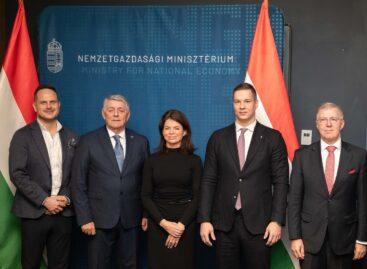Magazine: Introducing a global minimum tax
Taxing the digital economy and introducing a global minimum corporate tax are on the table both in the Organisation for Economic Co-operation and Development (OECD) and the European Union (EU). The OECD has developed a two-pillar system, in which Pillar 1 would deal with the taxation of digital multinational companies and Pillar 2 would be for the concerns about low taxes.

Guest writer:
Dr. Bálint Gombkötő
lawyer
PwC Magyarország
In December 2021 OECD published its recommendations for Pillar 2 – introducing a global minimum corporate tax rate set at 15%. Some countries use low tax rates (tax advantage) to motivate businesses for moving their profits there. OECD believes this is harmful tax competition, and the solution to the problem can be the introduction of the global minimum corporate tax rate. So far 137 countries have said yes to this proposal, and currently the new regulation is being introduced in these states.

Guest writer:
Dr. Gergő Szimler
lawyer
Réti, Várszegi és Társai
Ügyvédi Iroda
OECD calls the new regulation Global Anti-Base Erosion (GloBE) rules. The main rule is the so-called ‘income inclusion rule’, which says that the parent company must pay a tax on the tax advantage of any company belonging to the group. An alternative of this is the ‘domestic top-up tax’ – if the tax burden in a given country stays below the required minimum, the difference must be paid in accordance with the regulations introduced by the state where the tax rate is lower. The OECD and the EU calculate with the recommendations entering into force on 1 January 2023. //
Related news
Annual inflation in the OECD slowed to 3.9 percent in November
🎧 Hallgasd a cikket: Lejátszás Szünet Folytatás Leállítás Nyelv: Auto…
Read more >NGM and VOSZ cooperation agreement for the security of digital commerce
🎧 Hallgasd a cikket: Lejátszás Szünet Folytatás Leállítás Nyelv: Auto…
Read more >Related news
PwC Global CEO Survey: CEO confidence at a five-year low
🎧 Hallgasd a cikket: Lejátszás Szünet Folytatás Leállítás Nyelv: Auto…
Read more >







